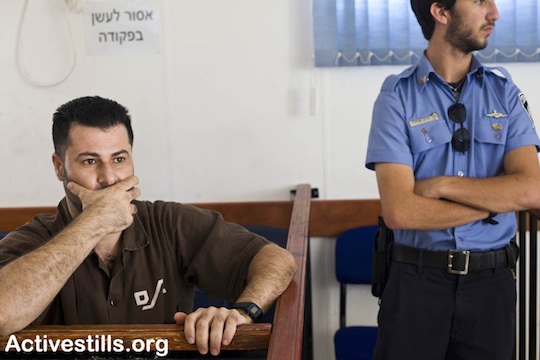Although segregated buses provide a clear and obvious picture of discrimination, applying different laws to individuals living side by side may prove to have far greater legal, ethical and strategic consequences for Israel.
By Gerard Horton

On Wednesday, May 20, 2015, Prime Minister Netanyahu announced the freezing of a plan to segregate passengers on buses traveling in the West Bank based on their race or nationality, less than a day after the regulation came into effect. The chief architect of the plan, Defense Minister Moshe Ya’alon, has made it clear that this is a temporary suspension and not a cancellation.
While the regulation presented a public relations disaster for Israel, one must wonder whether its suspension was motivated by something more, such as a genuine concern that it would amount to state-sponsored discrimination based on race or national identity? Unfortunately, the answer to this question appears to be negative. If you’re looking for evidence, just look at the Israeli state’s continued application of dual legal systems in the West Bank based on nationality.
Since 1967, Israel has exercised penal jurisdiction over both Palestinians and Israeli settlers living in the West Bank. Although Israeli military law technically applies to all individuals in the West Bank, in practice civilian law is applied to settlers. Accordingly, if an “Israeli” (as defined in the regulations) present in the West Bank is charged with an offense, he or she can be tried before a civilian court. This means that an Israeli in the West Bank, although in theory subject to concurrent jurisdiction (civilian and military), will invariably be prosecuted in a civilian court as a matter of public policy.
In practice this means that two children in the West Bank committing the same offense, such as throwing stones, are dealt with under two distinct legal systems, depending on who is Palestinian (military jurisdiction) and who is a settler (civilian jurisdiction). Not surprisingly, the child prosecuted in the civilian system will be afforded greater rights and protections.
It is important to note that in most conflict situations the issue of unlawful discrimination does not arise. However, it does arise in the context of the West Bank as a direct consequence of Israeli settlement activity. While there is no serious dispute as to the legal status of the settlements, there is also no lawful justification upon which Israel can discriminate between persons over whom it exercises penal jurisdiction.
This conclusion does not mean that Israel must apply its civilian law to Palestinians in the West Bank, as this would be tantamount to unlawful annexation. However, it does mean that the laws applied to Palestinians in the West Bank must contain rights no less favorable than those applied to their Israeli neighbors living next door in a settlement. It must also be noted that the rights and protections afforded to Palestinians living under occupation are ultimately derived from international law, which in some cases may exceed the rights and protections provided under Israeli civilian law, particularly in the current circumstances of a nearly 50-year military occupation.
Although segregated buses provide a clear and obvious picture of discrimination, applying different laws, with different rights and protections, to individuals living side by side based on nothing more than their race, may prove to have far greater legal, ethical and strategic consequences for Israel.
Gerard Horton is a lawyer and co-founder of Military Court Watch. Gerard has worked on the issue of children prosecuted in the Israeli military courts for the past seven years and is the author of a number of leading reports on the subject.


